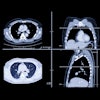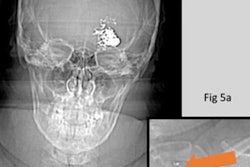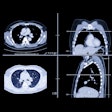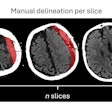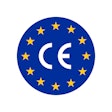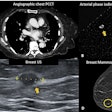Dear CT Insider,
Are low-dose CT scout images suitable for MRI safety screening? Can they accurately depict a range of different implants in patients with an unknown medical history?
Researchers from King's College Hospital in London have addressed these important questions, and they presented their key findings at the recent annual meeting of the International Society for Magnetic Resonance in Medicine. Our report posted today includes clinical images from two cases.
In other news, Spanish scientists have trained an artificial intelligence (AI) algorithm to detect brain hemorrhage in acute stroke on noncontrast CT. They found the tool to be far more reliable than human performance.
AI solutions excel at performing high-volume, low-complexity tasks, such as detection of pulmonary nodules and multiple sclerosis lesions. Emphysema volume measurement tools in radiography or chest CT and algorithms that help detect pulmonary infiltrates and classify breast lesions or liver tumors are also reliable, the group added.
The do's and don'ts of writing radiology reports were covered comprehensively by international speakers at a webinar organized by the British Institute of Radiology. Our first report on the meeting has already proved popular. And earlier this week, we posted a second article about the topic.
A lot of medical water has passed under the COVID bridge since the start of the pandemic. And in a hard-hitting column, Dr. Paul McCoubrie has reflected on events of the past two years and the mistakes made.
On a happier note, we have an uplifting article about how CT technology can help clinicians intervene more quickly to prevent cardiac arrest in very sick patients.
This newsletter highlights only a few of the many CT-related articles posted over the past month or so in our CT Community. For the full list, please check out the lineup below.


